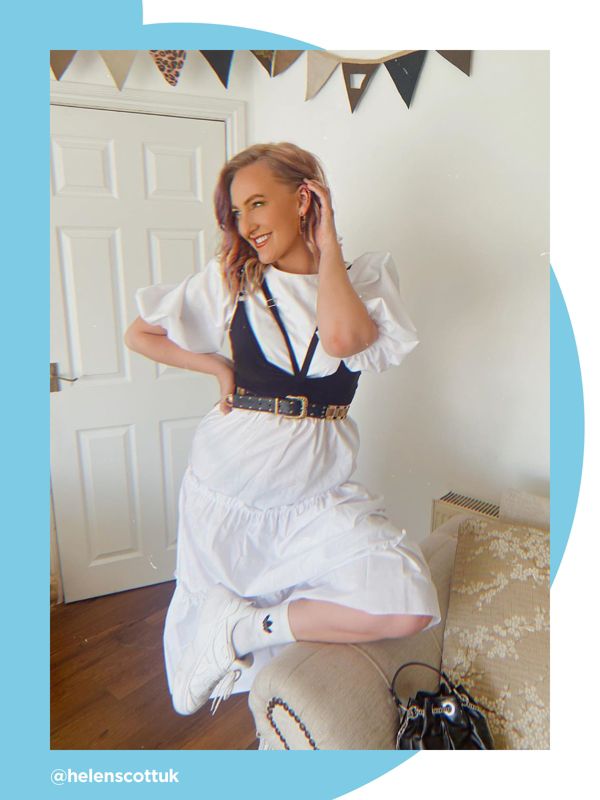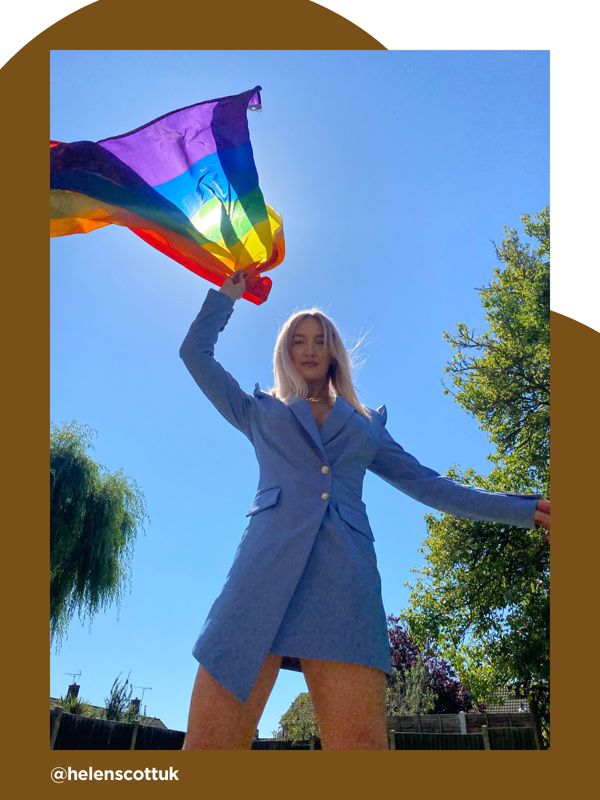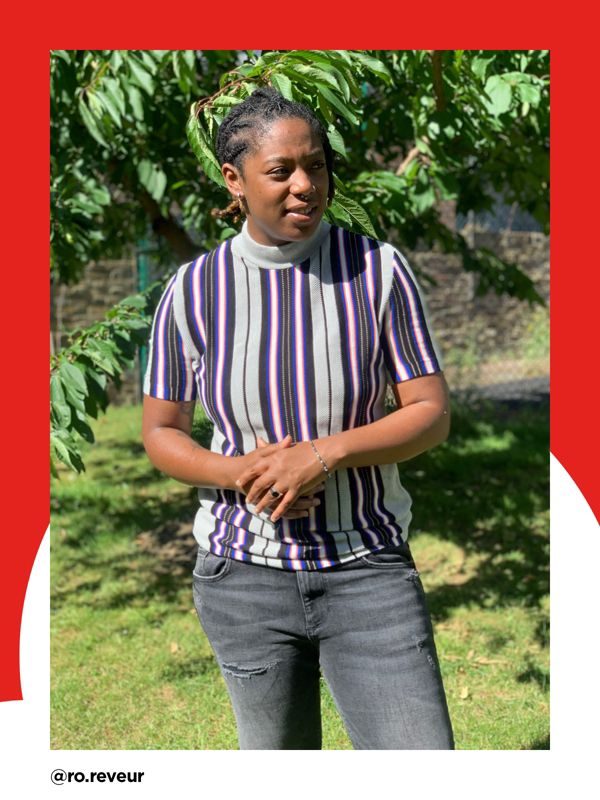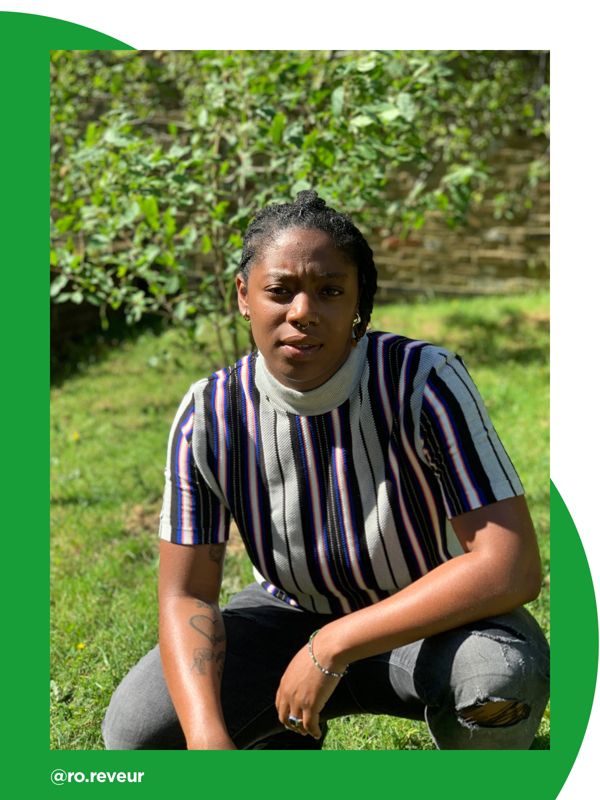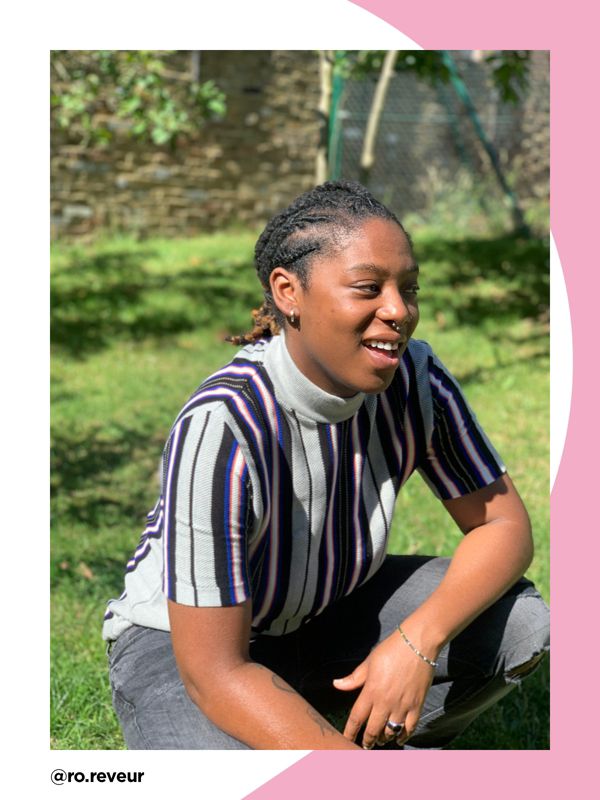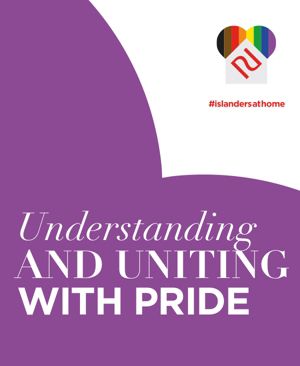
When you think of Pride you think of the parades and street parties, right? Us too. Although they are a massive part of Pride celebrations, it's important to remember that isn’t what Pride is about. With 2020 not exactly going to plan, we’ve all been given the opportunity to learn more about the importance of Pride and get back to the celebration’s roots. We spoke to radio presenter (and your self proclaimed gay best friend) Helen Scott and Rose Reveur, co host of Two Twos podcast, about what Pride means to them and how we can all be better allies to the LGBTQIA+ community. Check out what they had to say …
H: Pride started as a protest and a huge proportion of the community, including myself, has seen the meaning of Pride slip a little over the years. I mean, we do throw one hell of a party but we have to keep working towards equality so we can have the same freedoms as straight people. For example, deciding where to go on holiday with my girlfriend is difficult because there are many countries where you can be killed for being gay. Unlike straight people, we have to think about which hotel we’ll stay at, if we’ll be able to hold hands, will people stare and shout things? Will we feel safe? Having to think about those things is the exact reason we need pride to remain a protest and not just a party.


R: This tagline is all about talking about the common misconceptions about the LGBT scene cishet people have. We have open and candid conversations because we know talking about things especially in regards to gender identity can be daunting for those who are not from the community in fear of offending somebody. We hope to provide a space where these conversations can happen safely whilst still educating.
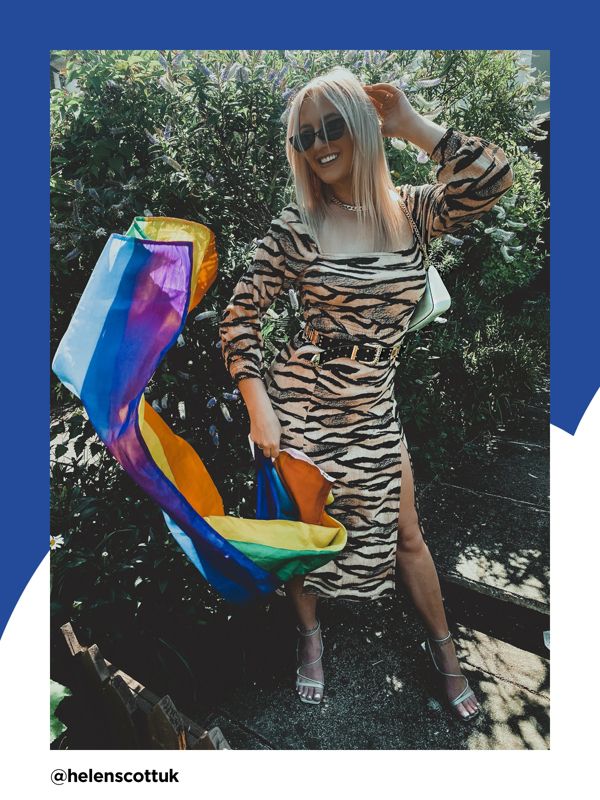
H: This year I decided to host my very own Pride event on my Instagram @helenscottuk. I had talks, takeovers, drag queens, performances, Q&As, topical debates and one hell of a party of course! It’s important to use this time to come together and have conversations that we might not have at regular Pride because we're too busy dancing and celebrating. It was the perfect opportunity to say ‘Hey! We’re still here, thank you for accepting us thus far, but here’s what else needs to change to make our lives as easy to live as yours’. It was the ideal opportunity for learning when everyone is at home and on social media more than ever before.


H: Absolutely! In my early twenties I began to dress ‘more gay’ or how I would describe it now as a more butch or masculine. The first few years of coming out, I’d go to gay bars and people in the community would say I was too femme to be gay which was just bizarre to me. That influenced me into dressing a ‘bit more gay’ to feel accepted and to actually get hit on once in a while. I felt like such a fraud on those nights because all I wanted to do was go out dressed like Samantha from SATC. It wasn’t until I decided to live in my truth and own my high femme lesbian self that I got rid of the checked shirts and replaced them with silky two pieces and stuck my fingers up at anyone who didn’t like it!
